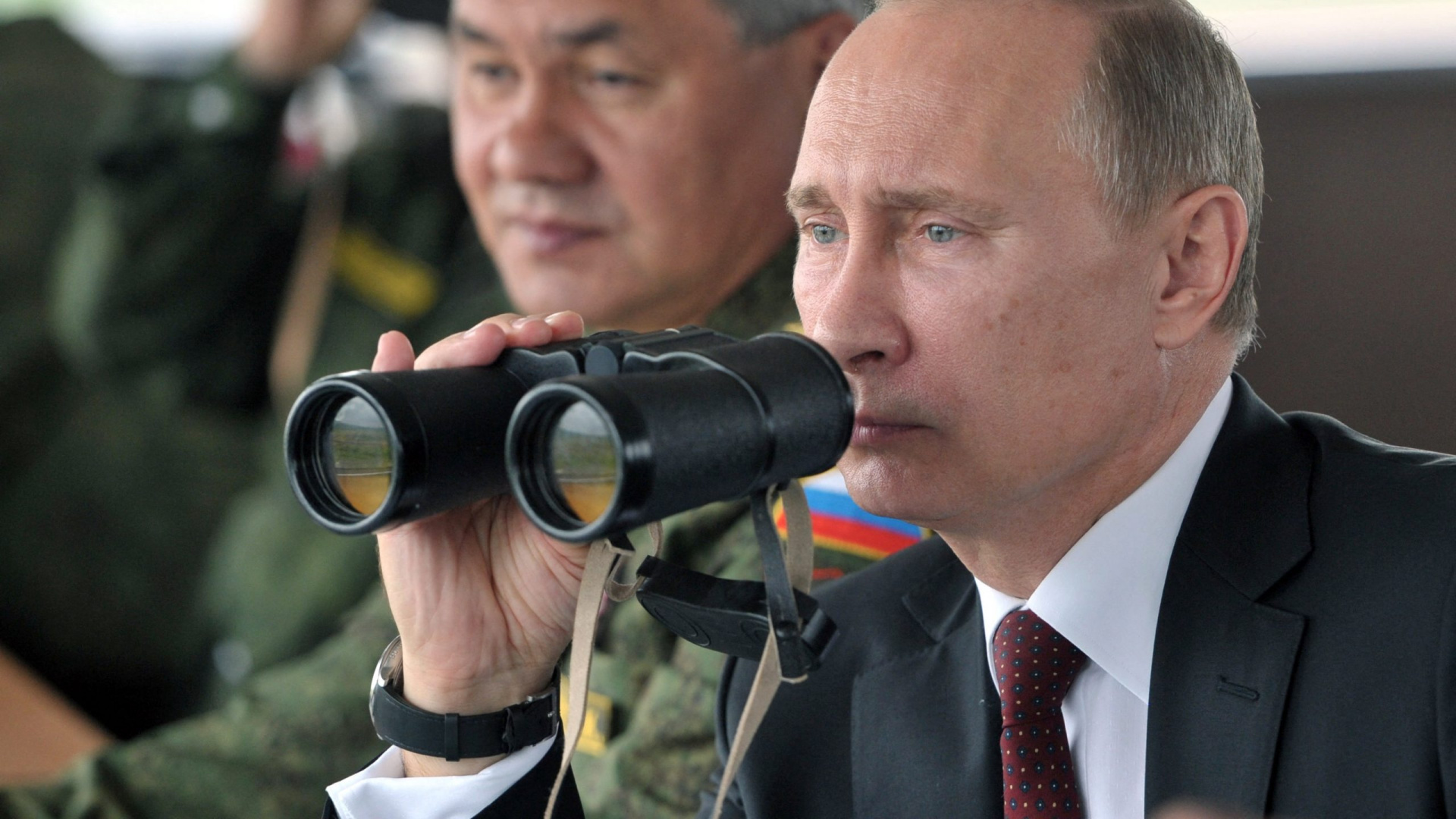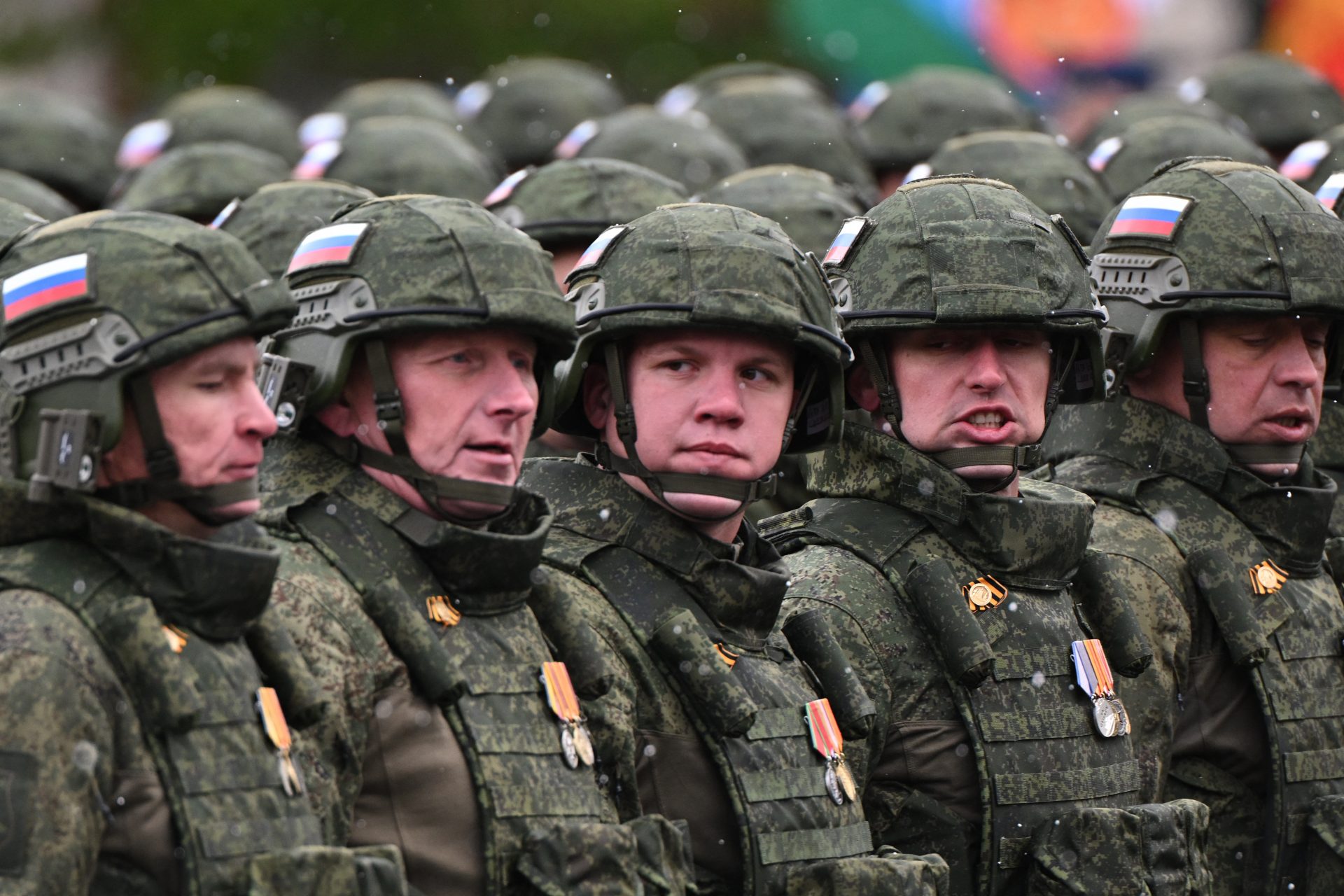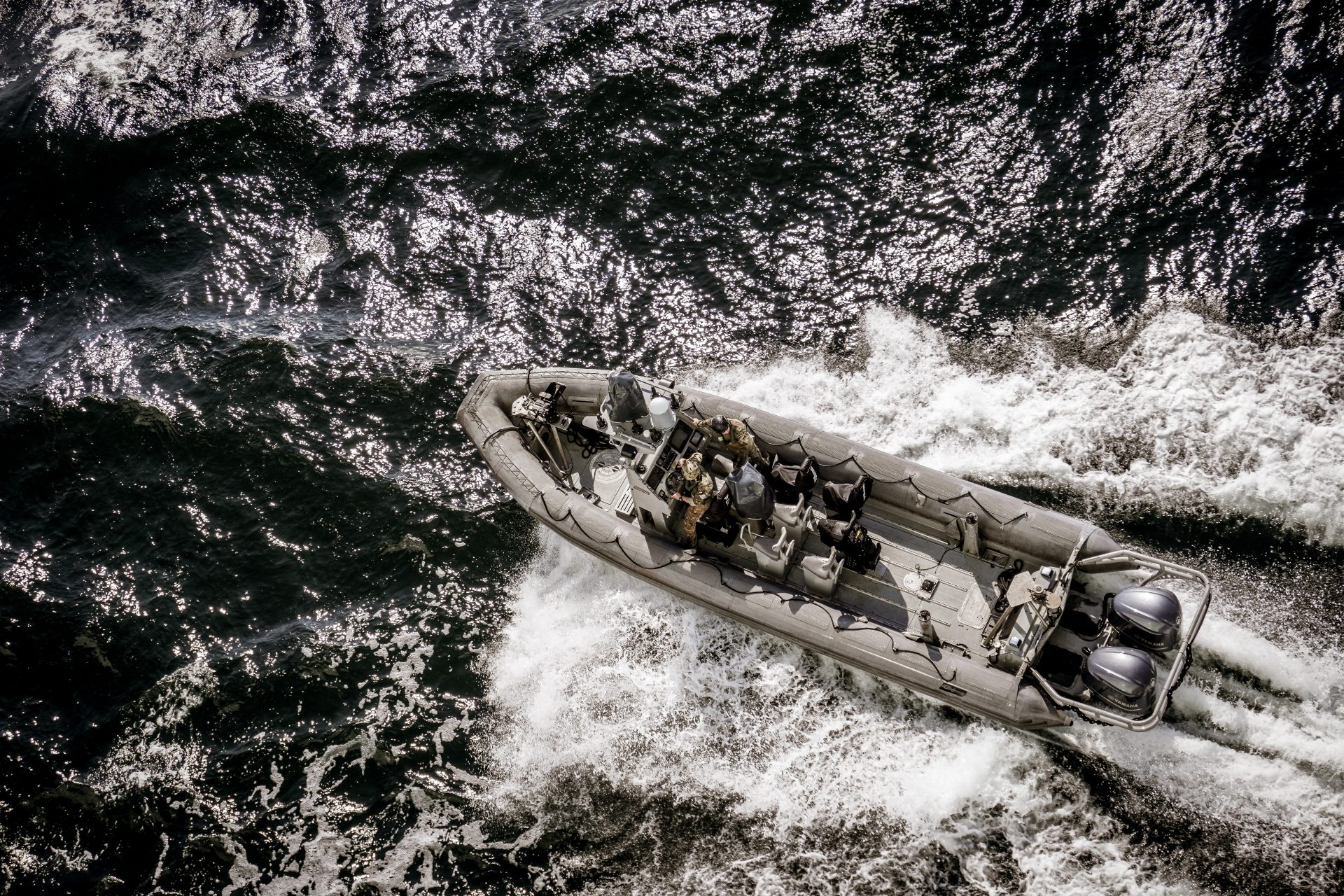Putin could be put on trial in 2023 for war crimes in Ukraine
Russian President Vladimir Putin could face the consequences of the Russian military's actions in Ukraine in 2023.
On January 7, 2023, the British government announced that UK Justice Secretary Dominic Raab (pictured) and the Dutch Justice Secretary Dilan Yesilgoz-Zegerius will host an international meeting in London in March to discuss the alleged war crimes committed by Russia in Ukraine.
The meeting is in support of the International Criminal Court's investigations into Russia's alleged war crimes. ICC Chief Prosecutor Karim Khan will be attending the event, which aims to increase financial and practical support to the ICC.
EuroNews reported that UK Justice Secretary Dominic Raab said, "Almost a year on from the illegal invasion, the international community must give its strongest backing to the ICC so war criminals can be held to account for the atrocities we're witnessing."
Moreover, the BBC recently published an interview with British barrister Sir Geoffrey Nice, who led the prosecution of former Serbian leader Slobodan Milosevic. Nice told the BBC that he believes Vladimir Putin is "a guilty man" for attacks on civilian targets during the war."
Sir Geoffrey is known for his work with the International Criminal Tribunal for the Former Yugoslavia (ICTY) between 1998 and 2006. His work led to the trial in The Hague in 2002 against the former Serbian leader Slobodan Milosevic for the crimes he committed in Croatia, Bosnia and Kosovo.
Regarding Russia's war in Ukraine, Mr Nice told the BBC that "the case couldn't be clearer" against Russian President Vladimir Putin.
Sir Geoffrey added he had "no doubt" that the Russian leader approved of the horrendous actions committed by Russian soldiers in Ukraine. However, the ICC has yet to make any declarations about Putin's responsibility for these crimes against humanity.
Photo: By Jamesfranklingresham - Own work, CC BY-SA 4.0, Wikimedia Commons
In the fall of 2022, the DW reported that a UN commission found evidence of executions, torture, and sex-based violence in at least four areas in Ukraine formerly occupied by Russian troops.
“Based on the evidence gathered by the Commission, it has concluded that war crimes have been committed in Ukraine,” Erik Mose, the head of the Commission, told the UN Human Rights Council.
Mose, according to The Guardian, told the council that the commission was particularly “struck by the large number of executions in the areas that we visited”.
The commission chief described that they found “visible signs of executions on bodies, such as hands tied behind backs, gunshot wounds to the head, and slit throats”.
According to their official report, the commission so far has focused on four regions: Kyiv, Kharkiv, Sumy and Chernihiv.
The UN investigators visited 27 towns and settlements and interviewed over 150 victims and witnesses of Russian atrocities.
More disturbingly, the commission informed that they had found cases of “sexual and gendered-based violence” where the victims ranged from the ages of four to 82.
DW highlighted that Ukrainian authorities reported over 400 bodies exhumed from a mass grave near the town of Izium, shortly after its from Russian occupation.
However, Ukraine's accusations of atrocities by Russian troops are not new. They have been going on pretty much since the start of the war.
Back in June of 2022, the Ukrainian government formally filed a case against Russia at the European Court of Human Rights Kyiv accused Moscow of “mass and gross human rights violations” during the Russian invasion.
The measure was perceived as merely symbolic since the State Duma, the country's legislature, voted to end the court's jurisdiction on Russian territory in early June.
However, Russia's alleged human rights violation during the Ukraine invasion has been an ongoing concern to the international community.
Pictured: Flags representing fallen soldiers during the Russian invasion in early June on Independence Square, Kyiv.
Josep Borrell, the top-ranking European Union official on international affairs, described at the time Russia's actions in Ukraine as 'war crimes', according to The New York Times. The Spanish politician in particular singled out Moscow's blockade of Ukrainian ports.
“Millions of tons of wheat remain blocked in Ukraine while in the rest of the world, people are suffering hunger. This is a real war crime, so I cannot imagine that this will last much longer”, Borrell stated to The New York Times on June 20, 2022.
Image: Wheat fields in Ukraine in 2020.
Fortunately, Kyiv and Moscow reached an agreement to allow shipments of Ukrainian grain to leave the Odesa port without any issues.
Reporters Without Borders denounced the execution of veteran Ukrainian journalist Maks Levin, whose body was found 30 kilometers north of Kyiv. The reporter appears to have been 'coldly executed', per an investigation done by the NGO.
However, it's difficult to say what repercussions, if any, these accusations will have on the Kremlin, particularly after the UN Human Rights Council suspension.
The United Nations General Assembly voted on April 7, 2022, to suspend Russia from the entity’s human rights body among accusations of war crimes during the Ukrainian invasion. The motion was proposed by the United States.
The most serious of these accusations, Al Jazeera reports, is the Bucha Massacre, where over three hundred Ukrainian civilians were suspected to be killed by the Russian Army in a small city near Kyiv.
Amnesty International declared on May 22 that it had found evidence of 22 unlawful killings in the city of Bucha perpetrated by Russian soldiers.
Ukrainian ambassador Sergiy Kyslytsya (pictured) urged the UN members to vote, arguing that massacres such as Bucha “serve as an example of how dramatically far the Russian Federation has gone from its initial declarations in the human rights domain”.
Kyslytsya also drew parallels to the Rwanda Genocide in 1994. “The genocide in Rwanda was largely due to the indifference of the world’s community, when the UN did not respond to warnings in the UN Security Council and in the General Assembly,” stated the ambassador.
Ninety-three countries voted in favor of suspending Russia from the council, including the United States, the United Kingdom, France, Germany, Canada, Turkey, South Korea and Japan.
Among the 24 nations that voted against the resolution are Russia, China, North Korea, Iran, Syria, Cuba, Bolivia, and Zimbabwe.
Fifty-eight countries refrained from the vote. Most notably, Mexico, Brazil, India, Saudi Arabia, South Africa, Pakistan, and the United Arab Emirates.
Pictured: Vladimir Putin in 2019 with the leaders of China, Brazil, India, and South Africa.
However, Russian Ambassador Gennady Kuzmin affirmed that his country had decided to resign from its council position hours before the measure was adopted.
“What we see is an attempt by the US to maintain its dominant position and total control, to continue its attempt at human rights colonialism,” Kuzmin stated, as quoted by Al Jazeera.
Pictured: US troops placed in Poland in March 2022 after Russia's invasion of Ukraine.
According to The New York Times, British representative Barbara Woodward retorted that Russia was like someone trying to quit a job which they already have been fired.
US Ambassador Linda Thomas-Greenfield called the decision an important and historic moment. “We ensured a persistent and egregious human rights violator will not be allowed to occupy a position of leadership on human rights at the UN,” the representative at the UN declared.
“The rare decision this Assembly has taken today sends a strong signal of accountability and hopefully will help prevent and discourage more violations of human rights,” said Ambassador Olof Skoog, head of the EU delegation.
Zhang Jun, the Chinese representative at the United Nations, argued that the motion set a dangerous precedent that could “further intensify confrontation in the field of human rights”.
The United Nations was formed in 1945, partially based on the idea of being a guarantor of world peace after the Second World War. That’s why the UN Security Council has five permanent members, that fought against the Axis: the United States, Russia, France, the United Kingdom, and China.
Russia’s suspension from the UN Human Rights Council is the first time that a permanent member has been suspended from any of the bodies that make up the United Nations. Something that didn't even happen in the most critical moments of the Cold War.
The only other country to have ever been stripped from its rights at the Human Rights Council was Libya in 2011, following government repression of protests against Muammar Gaddafi, who was later overthrown.
Pictured: Putin and Gaddafi in Moscow in 2008.
According to The New York Times, Russia will remain a member of the Council but is unable to propose resolutions, table amendments or address the council except in deliberations on situations in which it is directly involved.
The suspension will remain in force until either the General Assembly decides to lift it or until the end of 2023, when Russia’s term as a member comes to an end.
More for you
Top Stories

























































